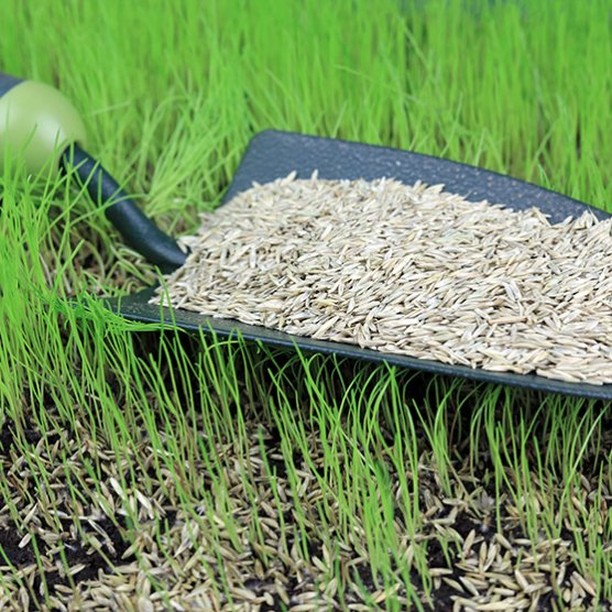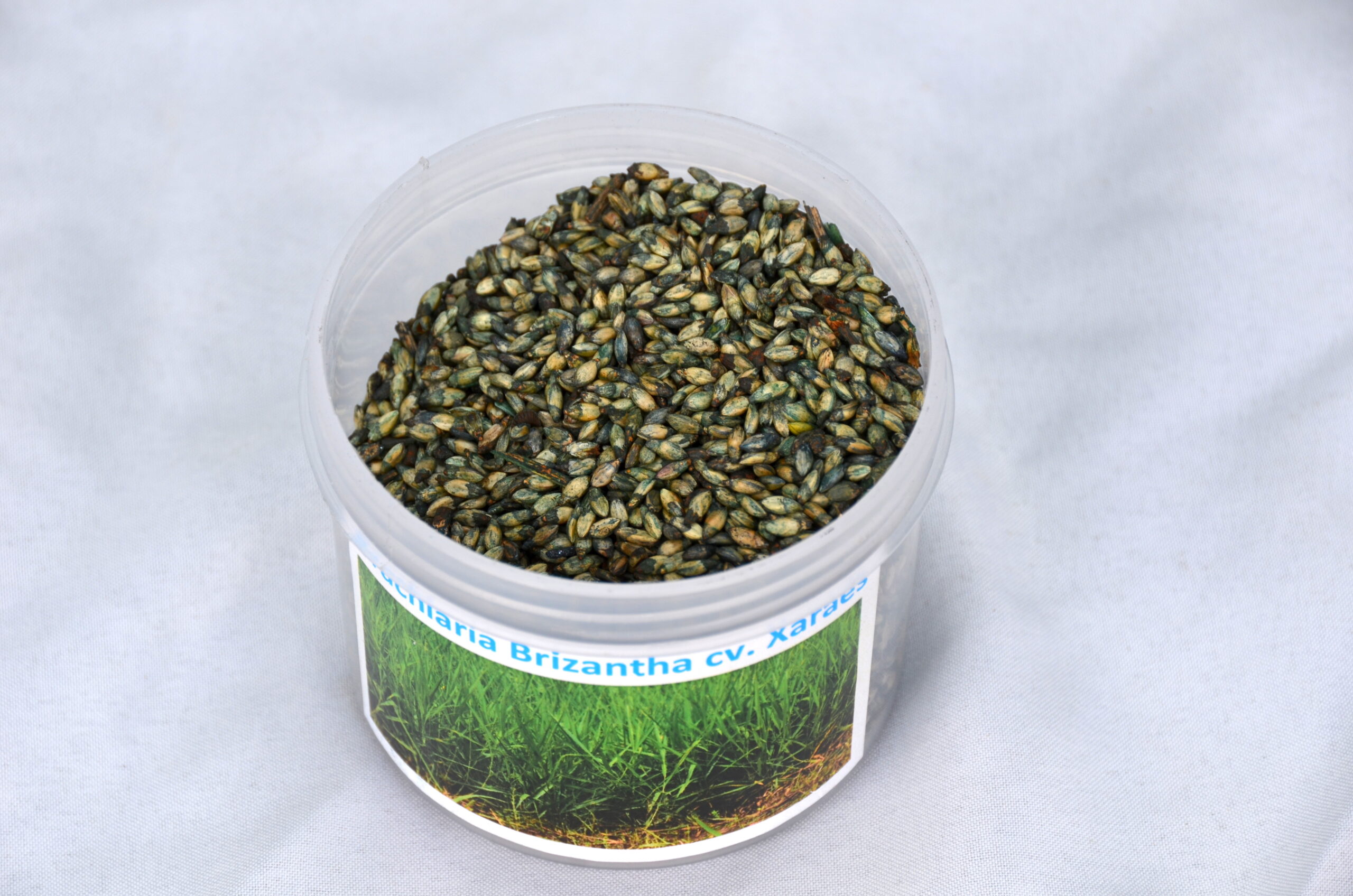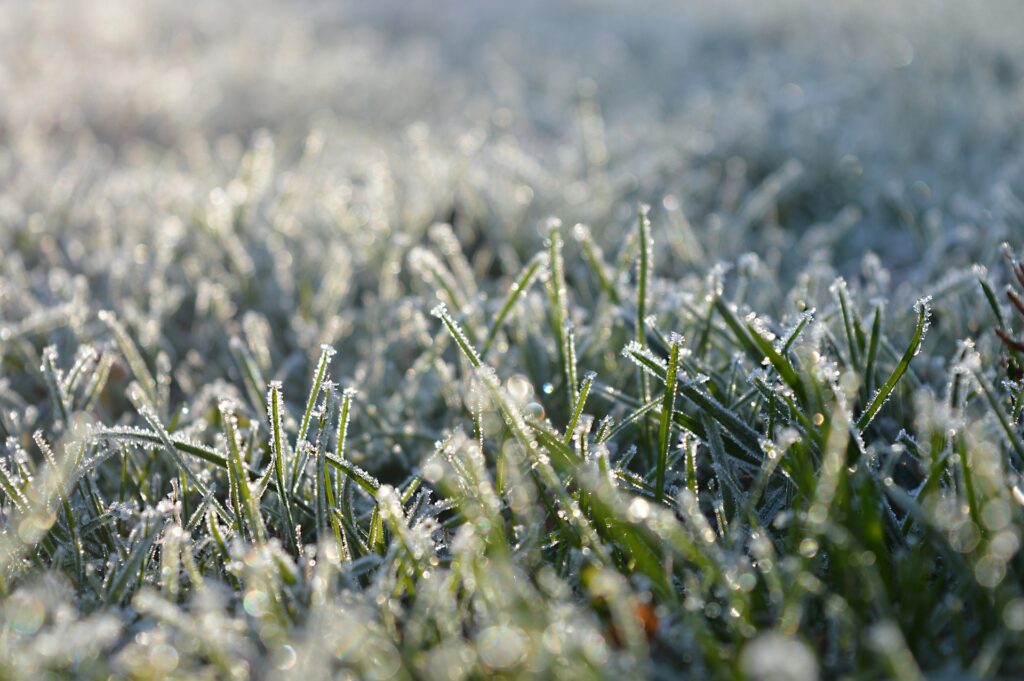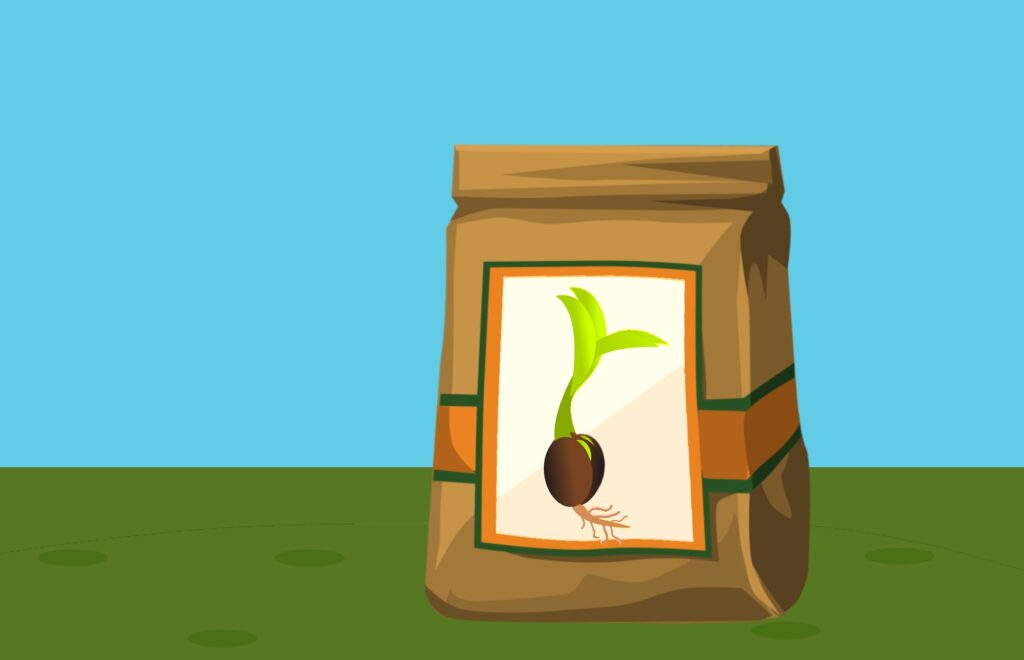Planting grass seeds is an easy and affordable way to build a lush lawn with minimal effort and expense. However, in spite of its longevity (usually two to ten years), grass seeds lose about 10 percent of their advertised germination rate annually.
So, read on if you, too, are uncertain how to handle grass seeds and whether or not they will survive storage.

Grass seeds are frequently sold with an expiry date stamped on the bag, and they can go bad over time.
Buying older seeds at a lower price does not necessarily constitute a good investment. Above, I mentioned that the germination rate advertised on seed packets decreases by 10% annually.
So, you can still grow grass from old seeds, but each year will require more and more seeds. Finally, there comes a time when grass seeds may no longer be usable.
Grass seeds, like most other consumable natural products, have a practical use by date. If properly stored, grass seeds have a shelf life of two to three years. We recommend planting your seeds within two years of purchase.
If you use three-year-old grass seeds, you’ll need to plant more seeds to get the required coverage.
So, let’s not waste any more time and dive right into the thick of things.
How To Tell If Your Grass Seeds Are Expired?
Grass seeds typically last 2 to 3 years. However, seeds less than a year old are recommended.

The packaging will include a sell-by date when you purchase seed from your neighborhood home and garden store.
If the sell-by date on your seeds has passed, this does not mean that they are spoiled in the same sense that we think of milk that has gone bad; rather, it just implies that the likelihood of them germinating will be lower.
Even so, you shouldn’t skimp on the visual check. You should examine the grass seeds you have stored for discoloration or fungal growth symptoms.
In addition, look for clumpy and moist spots on the seeds as well. Should you discover any of these, it is best to get new seeds and throw out the old ones.
How To Check If Grass Seeds Are Viable?
The viability of the grass seeds that you have on hand can be easily determined by germinating some of them in a bag. Here is what you will need to perform such a test:
Material Needed
- 10 pieces of grass seeds from storage
- Spray bottle with water
- Tissue paper/Paper towel
- Ziplock bag
Procedure
- Grab a paper towel and spritz it with a bit of water. Then, conceal some grass seeds by wrapping them in folded tissue paper.
- Lay the towel on top of the radiator or the dryer. The next step is to hold off for a few days before checking to see if any of the seeds have germinated.
- Check to see how many of the seeds have managed to germinate. For example, if half of them have germinated, it means that 50 percent of them are viable.
And that wraps things up! So, before you go and toss out those grass seeds that have expired because you think they are no longer good, give this test a shot first.
If they are still viable, but the germination rates have dropped, just increase the amount of seeds you use in your yard but do not toss them away if they are still viable.
RELATED: How Cold Is Too Cold For Grass Seeds? A Comprehensive Guide
Can Grass Seeds Freeze?
Most types of grass seeds are relatively unaffected, if at all, by temperatures that drop below freezing.

Grass seed has a natural resistance to extreme temperatures and can germinate even after being frozen. Therefore, seeds of grass that have been dormant all winter in a cold place like a garage or shed will usually germinate once the weather warms up.
However, keep in mind that if grass seeds are exposed to frigid conditions before planting, their germination rates will decrease.
And even though grass seeds are hardy enough to withstand temperatures below freezing, this does not suggest that planting grass seeds in the winter is a wise thing to do.
Instead, grass seed should be planted when it has the highest probability of germinating and growing into thick, healthy grass.
RELATED: How To Get Rid Of Fungus In Mulch For Good | The Ultimate Guide
Factors That Affect The Viability Of Grass Seeds
Rain and humidity increase the risk of fungal infection, mildew, and early sprouting in stored grass seeds.

The condition of grass seeds can be affected not only by the length of time they have been stored but also by the characteristics of the storage area.
Therefore, if you want to keep your grass seeds viable for an extended period of time after you store them in your garage or store room, you need to keep in mind the following things.
Pest Infestation
Grass seeds are typically packaged in a plastic bag that is susceptible to the accumulation of moisture in moist locations and is not robust enough to be rat-proof or insect-proof.
So, in addition to the environmental dangers, you should store your grass seeds in a position that is inaccessible to rodents and other unwanted visitors, such as bugs.
Humidity
The amount of moisture present in the air is referred to as humidity. When grass seeds are exposed to a humid environment, microorganisms may proliferate in them and alter the total moisture content of the grass seed.
Also, grass seeds that have been exposed to excessive moisture have a greater risk of developing mold and failing to germinate.
Sunlight
The presence of sunlight is yet another factor that can accelerate the germination process of seeds. The light stimulates the production of particular enzymes in the seeds, which in turn kickstarts the seeds’ development.
That is why the germination and viability of your seeds will suffer if you store them in places where they will be exposed to light.
Moisture
When the moisture content of the seeds is high, their shelf life is reduced. The presence of moisture also encourages the growth of fungi, which can destroy your seeds and produce mold, mildew, and even mushrooms.
If this occurs, the grass seeds you have are already dead and no longer suitable for planting.
This is why grass seeds are dried before being stored to minimize moisture content. In a fundamental sense, moisture is what reanimates the grass seedlings. So, to keep the grass seeds’ viability intact, it is best for them to have a lower moisture content.
Temperature
The majority of inexperienced gardeners store their seed packets in the garage.
Even though the temperature in the garage is low during the fall and winter months, the temperature is not well-maintained, which can impact the grass seeds’ ability to germinate.
Temperature swings in the garage or shed can lead to moisture forming inside the packaging of the grass seeds, which in turn can lead to moisture being produced by it.
Freezing temperatures may extend the shelf life of your food, but this will not be the case for living seeds. It can be “baked” if they are exposed to extreme temperatures.
Most grass seeds kinds should be stored at a temperature of 42 degrees Fahrenheit. The temperature is often the same as that which is produced by freezers.
To sustain their viability, these, in general, require a cool, dry, and dark location. On the other hand, achieving the ideal temperature to preserve the grass seed’s viability depends on the temperature and the type or species of grass seed.
How Old Is Too Old For Grass Seeds?
Depending on the kind, grass seed has a shelf life of 10 to 18 months if stored properly.

Grass seed has a shelf life of two to three years if it is kept in a dry and cold environment; nevertheless, the results may not be as good as they would be if the seed were planted when it was fresh.
Using seeds that have been held for longer will force you to use more to compensate for the lower germination rate. For instance, if you have a package of seeds that is ten years old, you may find that only around one in five of the seeds really germinate.
Not good, right? The viability of the seeds will be affected by the method of storage used.
For instance, seeds packaged in bags have a greater propensity to be negatively affected by humidity. However, the viability of the seeds will be preserved for a more extended time if they are stored in airtight containers as soon as they are gathered.
However, even under ideal storage conditions, the germination rate typically decreases. If the bag of grass seed is opened and then carefully stored, it can remain usable for up to 18 months. However, an unopened bag will remain usable for at least five years.
Most grass seeds, including Bermuda and Fescue, have an average storage life of up to three years. On the other hand, grass seeds that are suited for growing in hardiness zones 3 to 9 (such as Ryegrass) have a potential lifespan of up to 5 years if they are correctly stored.
How To Properly Store Grass Seeds?
I bet you have been counting down the minutes till this point! So, let’s get this thing going… The conditions under which they are stored have a significant impact on how long they will remain viable. Most people will tell you to keep your seed in a shed or garage outside, but that’s not the best choice because of the humidity and heat.
Best Storage Place For Grass Seeds
You may frown if I tell you to put your grass seed next to your carton of milk in the fridge.

Here are a few places that maintain a temperature between 40 and 50 degrees Fahrenheit at all times and are ideal for keeping or storing grass seeds:
Closet: Storing seeds without a basement or storage area is fine. Place the seeds at the back of your wardrobe. It keeps them dry and out of the sun.
Basement: Your basement is perfect for hiding seeds. However, storing them in the basement can make you forget them. So, post a reminder about seeds around your house.
Refrigerator: Grass seeds also do well in the fridge because of the constant chilly, dry environment it provides. But keep it at about 40 degrees Fahrenheit to extend seed life.
Heated Garage: Leaving it in a garage or unheated shed during winter can hurt them. So, only leave it in your garage if your HVAC system is connected.
However, make sure to put it in a desiccant-lined container to avoid moisture.
RELATED: How Long Does It Take For The Grass Seeds To Grow? Growing Grass The Easy Way!
Best Storage Container For Grass Seeds
Due to its porous nature, a burlap sack is an excellent choice for the storage of grass seeds.

It needs to be stored in a container that allows for adequate ventilation. Therefore, you are free to put the seeds in any of the following containers:
Storage box: If the extra grass seeds you have are too many to fit in a jar, you can put them in a storage box similar to the one you use for moving or for storing your electronics in the garage. However, place a small bag of baking soda inside the grass seed bag to decrease the possibility of moisture or fungal growth inside the container.
Airtight jars: Rodent-proof glass jars are ideal for grass seed storage. The jar also needs a desiccant to avoid condensation. Then, refrigerate the seed container until spring. Also, clip out the brand, testing date, and expiration date from the container and label the seed jar before transferring the seeds. The seed label will remind you of its lifespan.
Burlap sack: Since burlap is porous, it is the best material to use for preserving grass seeds until they are ready to be planted. These bags can be kept in a cold, dry location.
However, you must guarantee that the storage area is vermin-free. Mice and other rodents might eat your it if they can nibble through the burlap bags.
Final Thoughts
Does grass seed expire? The answer is yes. However, whether or not grass seed goes bad depends on how it is stored. Also, grass seed that didn’t germinate isn’t necessarily defective, either.
Many other things besides grass seed age can and will go wrong when cultivating grass. Also, keep in mind that commercially available grass seed will often have a germination rate of 80% or greater and will be sold with a tested date when you buy it.
The best way to ensure you’re getting a high-quality product packaged and stored correctly is to buy seed from a reputable distributor.
Frequently Asked Questions
Is it okay to use old grass seed?
It’s okay to use grass seed from a previous year. You should not, however, anticipate a high germination rate and the production of healthy seedlings. There is a ten percent chance that the grass seeds’ germination rate will decrease if they were part of your supply from the previous spring. As a result, you may need to apply more seeds than recommended.
Why Are My Grass Seeds Not Growing?
If the soil temperature is too high or too low, it will not germinate. The optimal germination of it occurs when the soil temperature is consistently at 55 F for a few days. Delays in germination can also be caused by a lack of sunlight or too much rain. In summary, it’s vital to make conditions favorable for it to germinate and grow.
My grass seed bag has a musty odor. Has it gone bad?
These are susceptible to fungal infection, mildew, and sprouting prematurely if they have been stored in a humid environment. So, if you feel like there is a musty odor coming out of its bag, they might have gone bad. So, you will either need to move it to a dry location or throw them away.
What happens to grass seeds after they expire?
People put too much stock on the expiration date on things they purchase. For example, the grass seeds you buy may also have a “sell-by” or “best-before” date. From personal experience, I can tell you that it is not uncommon for expired grass seeds to still produce results. However, you have to account for the reduced germination rates.
How long can grass seeds be kept in storage?
When they are correctly preserved, they can remain viable for anywhere from 10 months to 2 years after the date of testing. Remember that every seed is unique, and your mileage may vary. Over the course of two, three, or five years, no matter how carefully you tend to your seed bag, fewer and fewer seeds will germinate.
If you have reached this far, maybe you could try reading our other articles about backyard:
How To Make Bermuda Grass Thicker, Greener, and Fuller | A Beginners Guide
Why and When Should You Add Iron To Your Lawn For The Best Results
What Is Causing Bumps In My Lawn? And How To Get Rid Of Small Dirt Mounds!
Sources For Further Reading
Maintaining Grass Seed Viability in Storage. (2017). The Oregon State University Seed Laboratory. Retrieved 3 November 2022, from https://seedlab.oregonstate.edu/training-education/publications/maintaining-grass-seed-viability-storage
Can I Save Unused Grass Seed for Next Year? University of New Hampshire Extension Service. (2018). Retrieved 3 November 2022, from https://extension.unh.edu/blog/2018/11/can-i-save-unused-grass-seed-next-year







